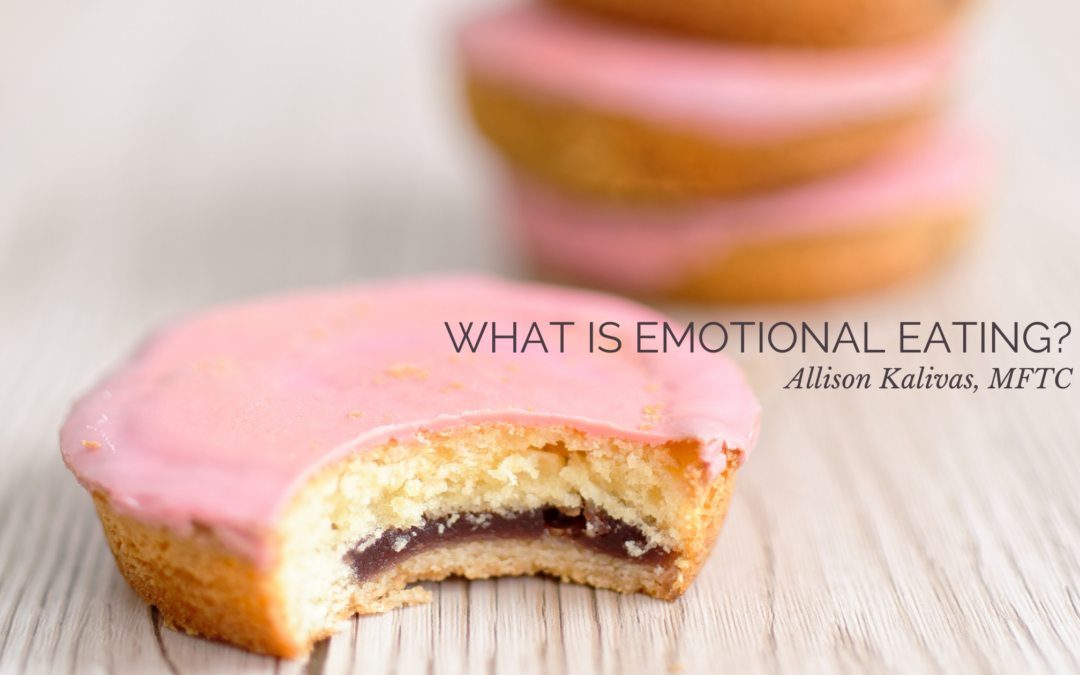The term ‘emotional eating’ is pervasive in our current culture. It can also feel very vague! Simply put, emotional eating is defined as eating for reasons other than physical hunger. It’s important to recognize that emotional eating isn’t necessarily a negative thing. Food has long been incorporated into social events or rituals and can be ways of showing care for another and for yourself. For many of us, our first experiences of comfort were being fed by our caregivers.

Am I an Emotional Eater?
It’s normal to eat for reasons other than hunger, like having a slice of birthday cake in celebration. That’s part of being a human being! It’s also been an incredibly stressful year and many of us have found ourselves reaching for food more frequently. Here are some common signs you might be turning to food to cope:
- An increase in stress at work, in relationships, or other domains of your life is causing a change in what you eat, how much you eat, and when you eat.
- Reaching for food when you’re already full or not hungry.
- Turning to food to avoid distressing feelings or situations.
- You are feeling the need to justify eating as a reward. For example: saying to yourself “I deserve this _____(comfort food) because today was really rough.”
Things to Consider

- Ask yourself what is it that you might be hungry for? For example, if you are reaching for a certain food, might you be hungry for calm, stress relief, connection, or are you hungry for appropriate nourishment? Developing an awareness of the varieties of messages hunger is telling you, allows you to properly feed what you truly need.
- It’s normal to not be quite sure what your hunger is telling you. You may have been interpreting your nonphysical hunger literally, so it would make sense to reach for food! However, this hunger remains until you tend to the underlying emotions or situations. Therapy can provide a space to discover emotional eating triggers and learn how to tell the difference between physical hunger and emotional hunger.
(Source: Poinier, A., Romito, K., Gabica, M., O’Brien, R. (2020, September 23). Emotional Eating: Topic overview. Healthwise Incorporated. https://www.uofmhealth.org/health-library/aa145852)
(Source: Johnston, A. (1996). Eating in the Light of the Moon: How women can transform their relationship with food through myths, metaphors & storytelling. Gurze Books.)
Photo Credits:
Photo by ian dooley on Unsplash
Photo by Inside Weather on Unsplash




